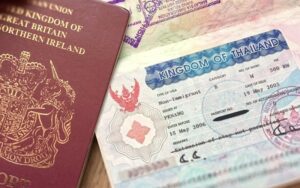Thailand has established itself as one of Southeast Asia’s most attractive destinations for business and investment. Its strategic location, growing economy, government incentives, and robust infrastructure make it appealing to both local entrepreneurs and foreign investors. Among the available business structures, the Thai Limited Company (Co., Ltd.) is the most popular due to its flexibility, liability protection, and ability to engage in a wide range of business activities.
Registering a Thai Limited Company requires compliance with the Civil and Commercial Code (CCC), the Foreign Business Act (FBA), and regulations set by the Department of Business Development (DBD) under the Ministry of Commerce. Below is a detailed step-by-step guide to the registration process, requirements, and key considerations.
1. Understanding the Thai Limited Company
A Thai Limited Company is similar to a private limited company in other jurisdictions. It is characterized by:
-
Limited liability: Shareholders’ liability is limited to the amount of unpaid shares.
-
Shareholding structure: Requires a minimum of two shareholders (as per amendments in 2023; previously three). They can be individuals or juristic persons.
-
Directors: At least one director is required to manage the company.
-
Registered capital: No minimum for Thais, but for companies employing foreigners or applying for work permits, at least THB 2 million per foreign employee is usually required.
-
Restrictions for foreigners: If foreigners hold more than 49% of the shares, the company is considered a foreign company and must comply with the Foreign Business Act, which restricts certain business activities unless a foreign business license is obtained.
2. Pre-Registration Steps
Before registering, business owners should prepare the following:
Choosing a Company Name
-
The name must be unique and not similar to existing companies.
-
It must not violate public morals, trademarks, or state symbols.
-
Up to three names may be submitted in order of preference to the DBD for approval.
Determining the Shareholding Structure
-
Decide on the number of shares, their value, and the distribution among shareholders.
-
At least 25% of the registered capital must be paid up at the time of incorporation.
Drafting the Business Objectives
-
Objectives should clearly outline the company’s intended business activities.
-
Broad objectives are often recommended to allow flexibility in future operations.
3. Step-by-Step Process of Registering a Thai Limited Company
Step 1: Reserve the Company Name
-
Submit the proposed name(s) through the DBD’s online system.
-
Once approved, the name reservation is valid for 30 days and cannot be extended.
Step 2: File the Memorandum of Association (MOA)
The MOA is a foundational document that must be registered with the DBD. It includes:
-
Company name.
-
Registered office address.
-
Business objectives.
-
Registered capital and division into shares.
-
Names and details of promoters (the initial shareholders).
The promoters must sign the MOA, and each must subscribe to at least one share.
Step 3: Convene a Statutory Meeting
After the MOA is registered, a statutory meeting is held to:
-
Approve the Articles of Association (bylaws of the company).
-
Ratify contracts and expenses incurred during company formation.
-
Fix the number of preference and ordinary shares.
-
Elect the first directors and auditor.
-
Approve the remuneration of promoters, if any.
Step 4: Register the Company Incorporation
Within 3 months of the statutory meeting, the directors must submit the application for company registration. Required documents include:
-
Company registration application form.
-
MOA and Articles of Association.
-
List of shareholders.
-
Minutes of the statutory meeting.
-
Director(s) details and acceptance of appointment.
-
Proof of registered office (such as a lease agreement).
At this stage, government fees are paid, calculated based on registered capital (up to a maximum of THB 200,000).
Step 5: Tax Registration
Once incorporated, the company must register for tax purposes:
-
Corporate income tax with the Revenue Department.
-
VAT registration if annual turnover exceeds THB 1.8 million or if the company engages in businesses requiring VAT regardless of turnover.
-
Social security registration with the Social Security Office if hiring employees.
4. Post-Registration Considerations
Company Bank Account
A corporate bank account can be opened once the company documents and director’s authority are in place.
Work Permits for Foreign Directors/Employees
To employ foreigners, the company must meet requirements such as:
-
Minimum registered capital of THB 2 million per foreign employee.
-
Four Thai employees must usually be employed for each foreigner.
-
Compliance with Thai labor laws.
Accounting and Reporting Obligations
-
Annual financial statements must be prepared and audited.
-
Annual shareholder meetings must be held.
-
Corporate income tax returns must be filed twice a year (interim and final).
-
VAT and withholding tax filings must be submitted monthly, if applicable.
5. Special Notes for Foreign Investors
Foreign investors often use a Thai Limited Company as a vehicle to enter the market, but they must be aware of restrictions under the Foreign Business Act (FBA):
-
Foreigners may hold up to 49% of shares in most sectors without special approval.
-
To own more than 49%, the company must apply for a Foreign Business License or qualify for exemptions (e.g., under the Board of Investment promotion or US-Thai Treaty of Amity).
-
Nominee shareholding (Thais holding shares on behalf of foreigners) is illegal and subject to severe penalties.
6. Timeline and Costs
-
Name reservation: 1–3 days.
-
MOA filing: 1–7 days.
-
Statutory meeting and company registration: typically within 7–10 days after MOA approval.
-
Total timeline: 2–4 weeks, depending on complexity.
-
Government fees: Based on registered capital, generally 5,000–25,000 THB for small to medium companies.
7. Advantages of Registering a Thai Limited Company
-
Liability protection: Shareholders’ liability is limited.
-
Market access: Ability to engage in a broad range of activities.
-
Investor confidence: A recognized legal structure for partnerships and financing.
-
Growth potential: Ability to hire staff, own assets, and expand operations legally.
Conclusion
Registering a Thai Limited Company is a structured but manageable process if all requirements are properly understood and followed. From reserving a name and drafting the Memorandum of Association to holding the statutory meeting and registering with the Department of Business Development, each step must comply with Thai law to ensure the company’s legal standing.
For Thai nationals, the process is straightforward, while for foreign investors, additional considerations such as ownership limits, work permit eligibility, and compliance with the Foreign Business Act must be carefully managed.
Given the complexities and risks of non-compliance, most entrepreneurs and investors engage professional legal and accounting assistance to streamline the registration process, ensure regulatory compliance, and establish a solid foundation for their business in Thailand.






















